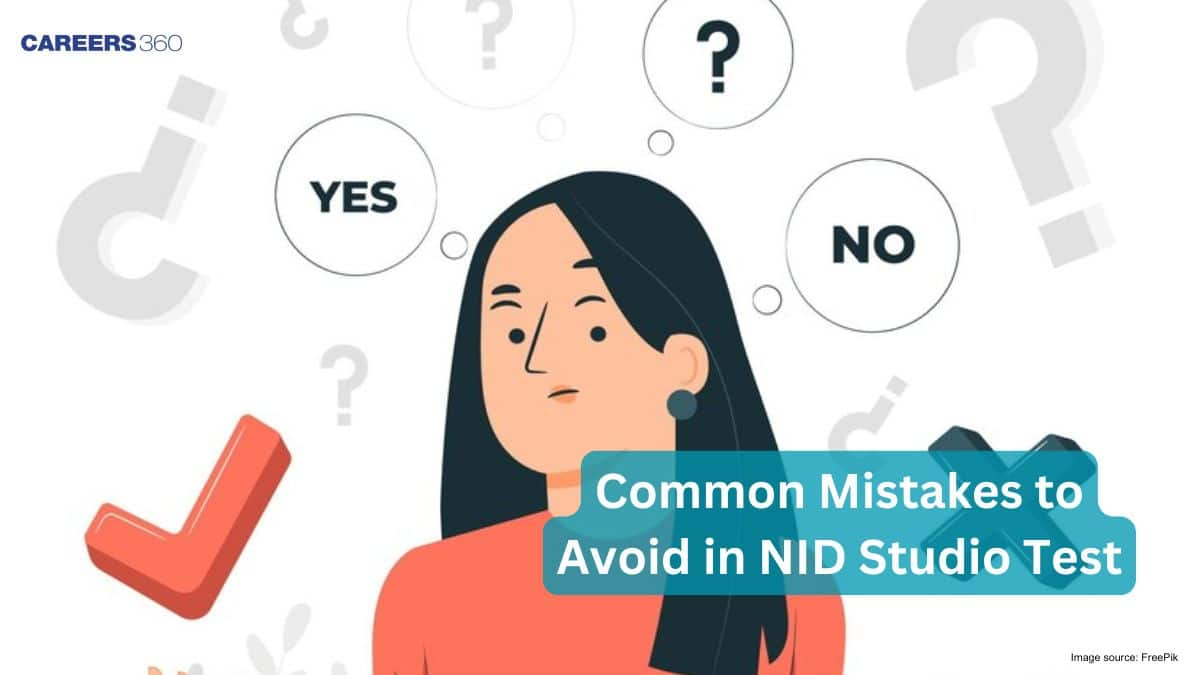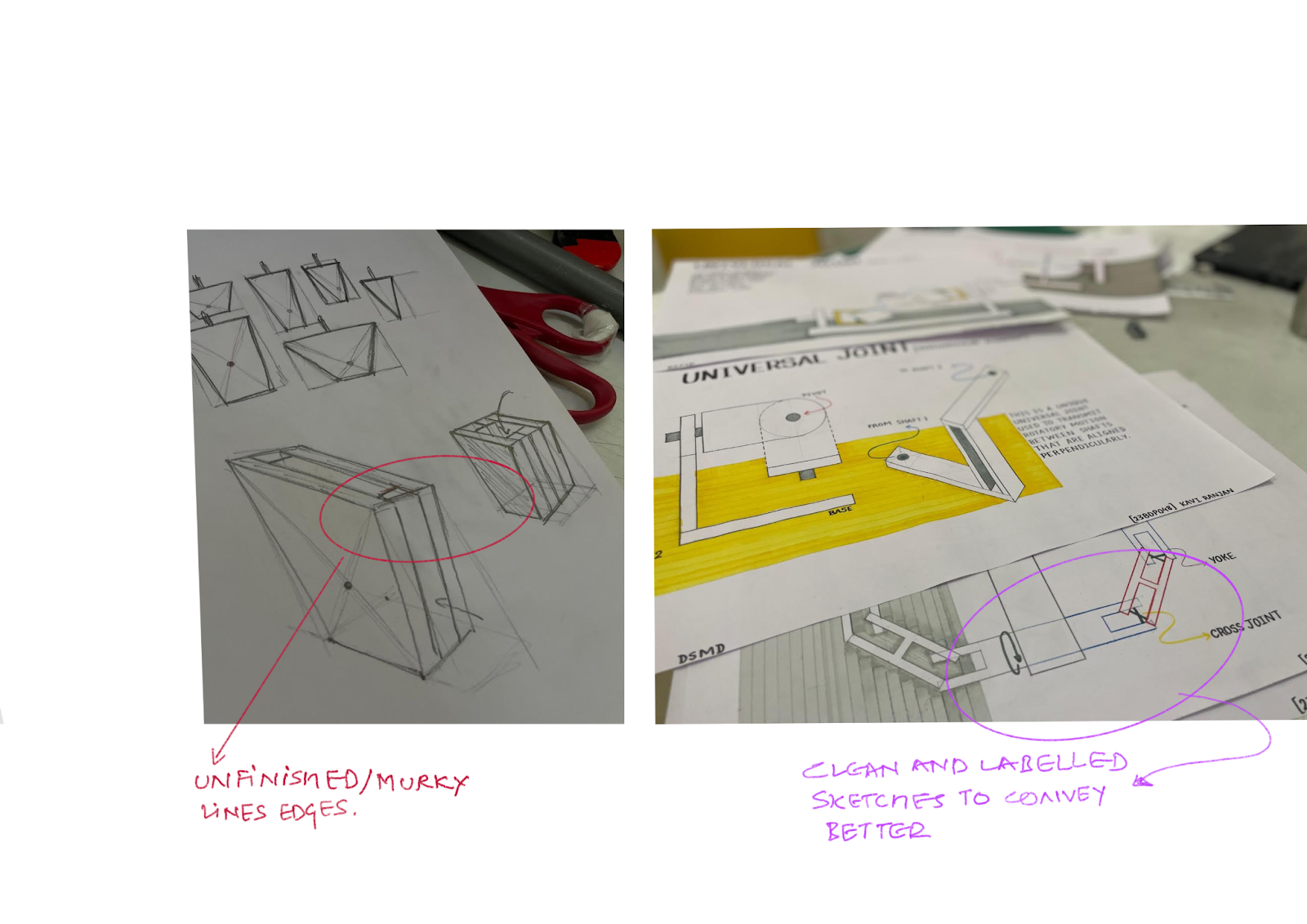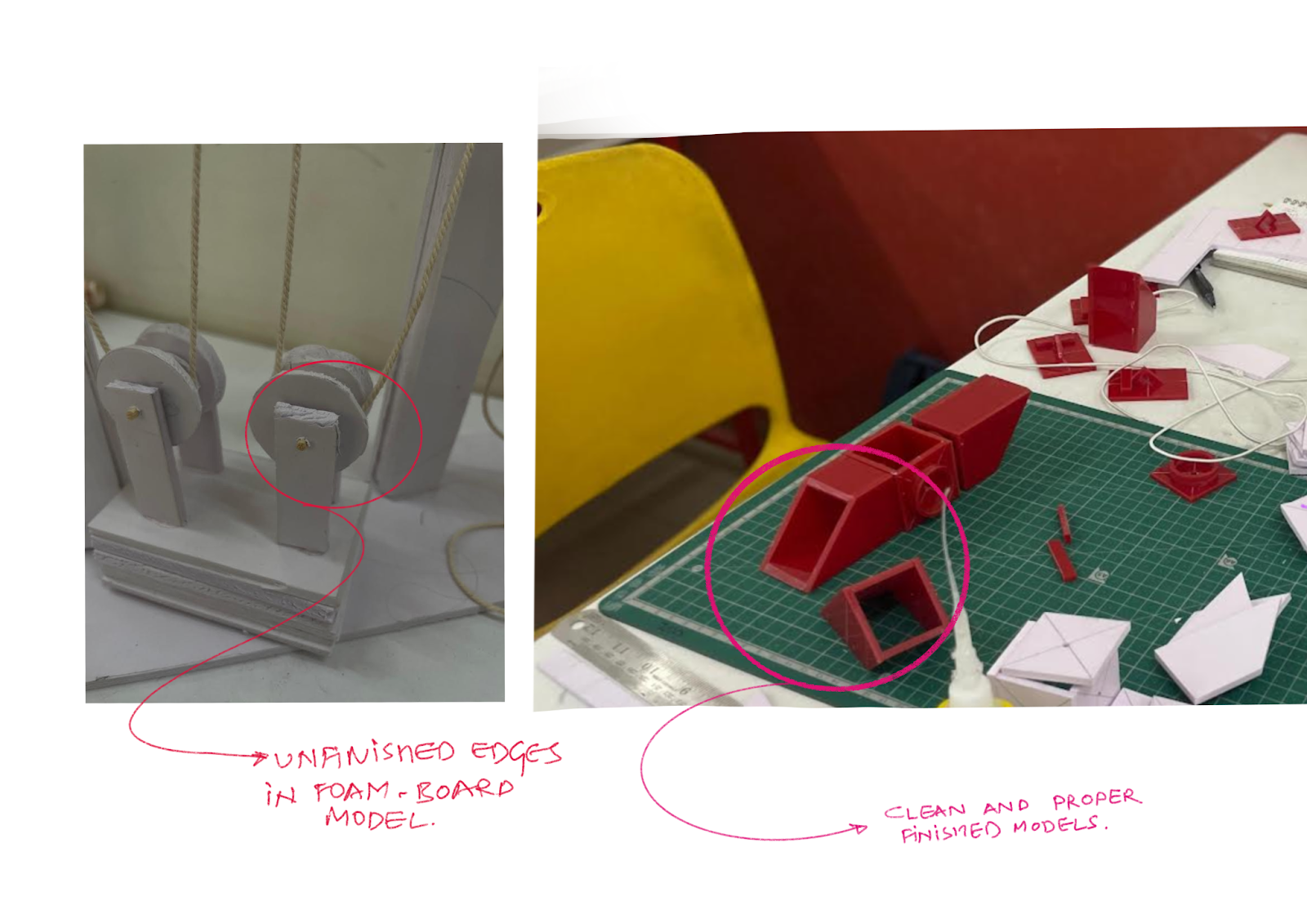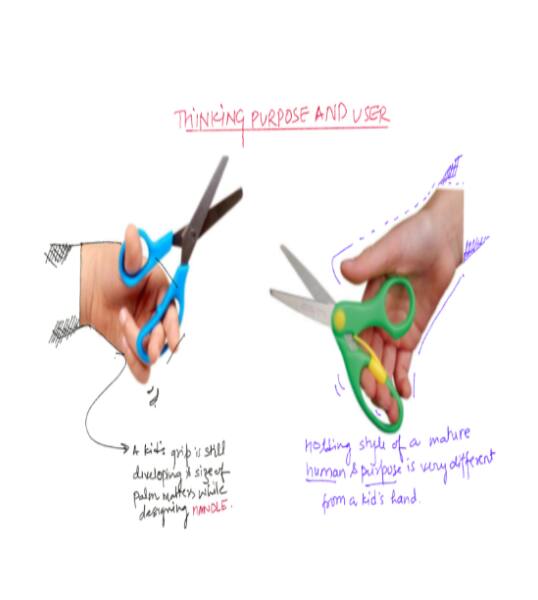UPES B.Des Admissions 2026
Ranked #45 amongst Universities in India by NIRF | Ranked #1 in Academic Reputation in India by QS World University Rankings
Hello students! Congratulations to NID candidates who passed the NID Exam's first round. This is your opportunity to showcase your originality, creativity, and enthusiasm for design thinking as we approach the final level (Studio Test). This article will applaud your accomplishment and offer advice on how to steer clear of certain common mistakes for DAT Studio Test. The National Institute of Design has conducted the NID 2026 Exam on 21st December, 2025. With the appropriate techniques and advice to maximize your performance and give the NID Exam your best effort.

Here are some tips and strategies that students can use in their preparation for the NID Studio Test and score high:
Not thinking, “Why” does it matter? Keeping ‘Why” in mind. How should each element you are integrating support your concept? The most common mistake is forgetting the “Why” part of the question before jumping to any execution.
Before beginning, frame a simple one-line idea about what you suggest, sketching and finally building. Think “Idea first”, execution second for a successful approach.
Challenge : What to do. This is not working as I thought it would!
Design challenges often make us confront surprises, where sometimes aspirants tend to lose confidence and compromise the idea & its presentation in case of any ambiguity. If your first idea doesn’t work or fit the context, shifting gears to respond creatively without getting restless is the only way out.
Struggling with neatness while handling clay, wire foam board, etc. for model making is very common. Understanding the material and based properties is critical to understanding their strengths and weaknesses. Anyone interacting or manipulating the material for the first time may face challenges in the following aspects.
Making joint Connections
Clean Cutting, Disassembly, etc.
Organising the Overall Workable Model
Before appearing in the exam, try sample questions and previous year's Model-making based questions to enrich your dexterous skills. Practise open-ended questions that could help you boost spontaneous acting!
Related Articles students are advised to go through:
Not getting what to do? Sketch your dilemma. Let’s try to understand the same with some examples as shown below:

Often, while sketching or communicating ideas, students forget to mark, label, etc. It is crucial to effectively communicate without undermining the requirement for highlighting the functional statics of the idea.
“Great Concept/idea is not only about creation but also about communication”.
Often, during studio tests, students struggle to produce sketched or modelled outcomes with the right proportions, which creates an awkward imbalance of size. This gives an impression of an individual's lack of attention or aptitude. This skill set is crucial for reflecting a correct understanding of the real-world dimension and contextually fitting in the real world.
In everyday life, try to understand the proportional understanding of objects, humans, and interaction (human-opening door handles).
Rushed finishing and inappropriate handling of materials in model-making give an unprofessional final look. Let’s Try to understand the reference model:

Keep at least 10-15 minutes to clean edges and smooth surfaces and check neatness. Carry a masking tape, sandpaper, cutter and extra glue to fix minor flaws spontaneously.
As designers, our focus is on real-life scale solutions that fit the user's needs contextually. Always Think, “Who will use it”?

Let’s try to understand this with examples of scissors, where the user is a kid and a grown-up person, which are two different use case scenarios and their application based on the understanding of the end-user and application.
Related Articles:
Students waste a lot of time trying to achieve the idea that comes to their mind, which is primarily impractical or less feasible. Also, the first idea is a very generalised approach that may be very common with everyone, without any uniqueness.
It is advised to brainstorm at least 2-3 ideas through quick ideation and “simplify the approach” for more practical and feasible ideas in the given time and material limits. “Always try to score 2-3 ideas , before fixing to one as the proposed solution”
Ignoring specific instructions often leads to negative marks, disqualification and losing marks; this is a repeated challenge usually faced by students appearing in the Studio Test Exam due to nervousness or hurry.
Commonly missed details or specifics are as follows:
Not reading the instructions carefully, like not using the colours
Wrong or unintended use of material for model-making
Missing Questions of Specific Instructions
Marking Related instructions
Representation or Any other instructions
It is advised to recheck the rules or instructions before final submissions quickly.
Related Articles:
In any design aptitude test, examiners are looking for originality; some Frugality, ideas flowing mind to hand. Focus on the process, clarity and creativity, ideas. Remember, simplicity, storytelling, time management, and User Empathy is your greatest ally. Each step to refine these core skills will bring you closer to standing out in your NID Studio Test 2026 or any design entrance examination.
You may also check:
On Question asked by student community
No specific stream is required in Class 11 for BDes admissions. You can join B.Des (Bachelor of Design) with any stream in Class 11th (Science, Commerce, or Arts/Humanities). Top design institutes like NID ( NID DAT scores) and NIFT ( NIFT Entrance Exam ), as well as IITs (via UCEED),
Hello,
Yes, if you are in Class 12, you are eligible to sit for the NID DAT 2026 (BDes) exam. The National Institute of Design allows students who are in their final year of Class 12 or have already passed to apply.
To know more access below mentioned link:
You can get the NIT DAT SYLLABUS, updated version from careers 360 in detail from careers 360 article. Follow the link given from The link of the syllabus article is given below from careers 360
https://design.careers360.com/articles/nid-dat-syllabus-2026
Yes you are eligible to appear for NID DAT for the M.Des programme. Since you are in final make sure you will have completed your BA by the required deadline. Also go through the specific specializations you want to apply for, some may require certain specific backgrounds to be eligible
Hello,
To prepare for M.des exams like CEED or NID DAT, here are some points which you can follow:
Understand the pattern – focus on creativity, design aptitude, and problem-solving.
Practice sketching daily and improve visualization.
Study basics of color, form, and design concepts.
Solve previous papers and build a
Among top 100 Universities Globally in the Times Higher Education (THE) Interdisciplinary Science Rankings 2026
1200+ Recruiters for Placements | 30+ International Collaborations | 45+ Advanced Labs and Studios
Integrative learning through a multidisciplinary process. Ranked Best Young Universities amongst Karnastaka
Courses offered in- Fashion Design, Product Design, Communication Design, Interior & Spatial Design & Animation & VFX Design
#14 in India by NIRF Ranking | Institution of Eminence by Govt. of India | Scholarships Available
Global internship and placement opportunities